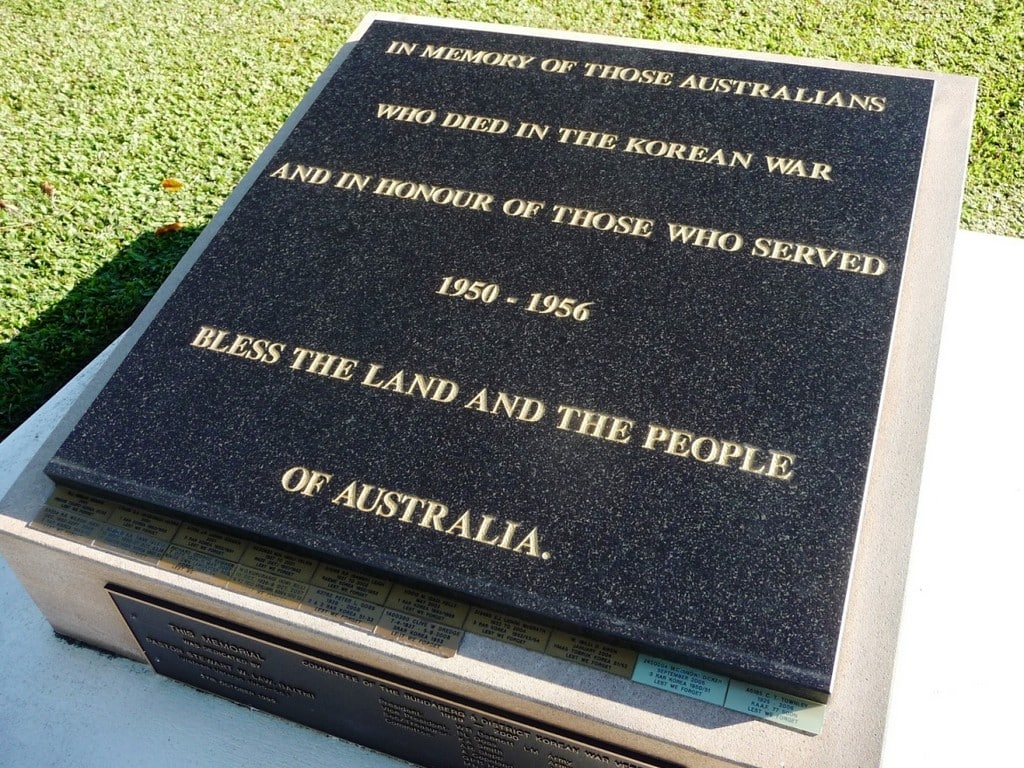
For the 71st Anniversary of Korean Veterans’ Day, Bundaberg RSL Sub Branch will hold a local commemorative service at Lions Remembrance Park on Saturday 27 July, marking the day in 1953 when the armistice was signed to end fighting in Korea.
Bundaberg RSL Sub Branch board member and veteran Max Francis will be the master of ceremonies for the service and says he was encouraging the community to attend the commemoration to honour local veterans.
“We have about five members who served in Korea who will be in attendance, and maybe one or two others who might venture out this year too,” Max said.
“It’s very important that our Sub Branch takes the time to support and pay respects to all who have served.
“We see how much it means to veterans and their families – it’s a special outing for them.”
Alongside South Korea and 20 other countries under the United Nations flag, more than 17,000 Australians served in the country’s three-year involvement in the war.
Among the Bundaberg Korean veterans, Barry McMullen says he was looking forward to attending the service and will read a short poem titled: Korean War—1951–1953 by Lt. Cmdr. (Ret.) Roberto J. Prinselaar.
“It’s unfortunate, but the Korean War is often forgotten, which is written in the poem – not a lot of people know about it,” Barry said.
“But our commemoration is about remembrance.
“Remembering the people I served alongside.
“Whether they were at sea, land or in the sky, all of us were there – Army, Navy and Air Force.”
Serving 366 days in Korea from 1951-1953, Barry worked in the engine room of HMAS ANZAC D59 as a mechanic.
Enlisting in the Royal Australian Navy at just 17, Barry was only 18 when he was first deployed to Korea.
“I remember asking a friend ‘Can you get me on something going anywhere?’ and he said,
‘What about Korea?’ and I said ‘Oh yeah I will go to Korea’, so off I went.”
“When I first arrived, I didn’t understand what we were fighting for. All I saw was land with rocks and more rocks.”

The now 91-year-old says HMAS ANZAC’s primary focus was patrolling the west coast of Korea to bombard enemy shore positions, supporting the United Nations Forces and screening aircraft carrier groups against attack.
“One of the things we patrolled for and monitored with our radar was water mines, which hit many American ships during the war,” Barry said.
Barry also thinks back on the difficult weather conditions he faced in both summer and winter, alongside a packed ship with 38 people in his department alone.
“I think Korea’s summers are terrible, but winters are worse and bitterly cold,” Barry said.
“Our boiler room, which is used to create steam to run the ship, had a huge force fan that blew air through it, making conditions freezing for us in the winter.
“Then in the summer, as we worked near the boiler’s shut off valve, it would get up to 160 degrees Fahrenheit [around 71 degrees Celsius].”
Reflecting on his time in Korea, Barry said he was relieved to see the Sydney Harbour when he returned to Australia in 1953.
Today, he wears his medals with pride and is pleased he has been able to remember fellow veterans and his service at home and abroad.
“In 2014, I returned to Korea for ANZAC Day services after a formal invitation from the Republic of South Korea.”
“And yearly I go to Bundaberg’s Submarine Lookout memorial at Elliot Heads and reflect back on my time in Korea.
“I’m humbled one of the memorial organisers – Tinney Patterson – chose to honour me with a story about my service.”





My father served with the RN on HMS Jutland D 62, as a stoker. And served in Korea.
Unfortunately he’s passed away.